Historically, giving directly to individuals and families has been the most frequent way to carry out philanthropy. However, this trend changed in 2022, when the majority (53.6%) of donation instances were directed to non-profit organizations, while only 39.5% of donations were given directly to individuals and families.
While giving to local and national governments and public institutions (schools, health clinics, culture centers, etc.) saw its apex in 2020 during the COVID-19 crisis, its decline in 2021 and 2022 brought the levels of giving through these recipient types down to the levels even lower than pre-COVID. This is specifically the case with giving to public institutions, which recorded single-digit levels for the first time in 2022, comprising just 3.2% of all donations.
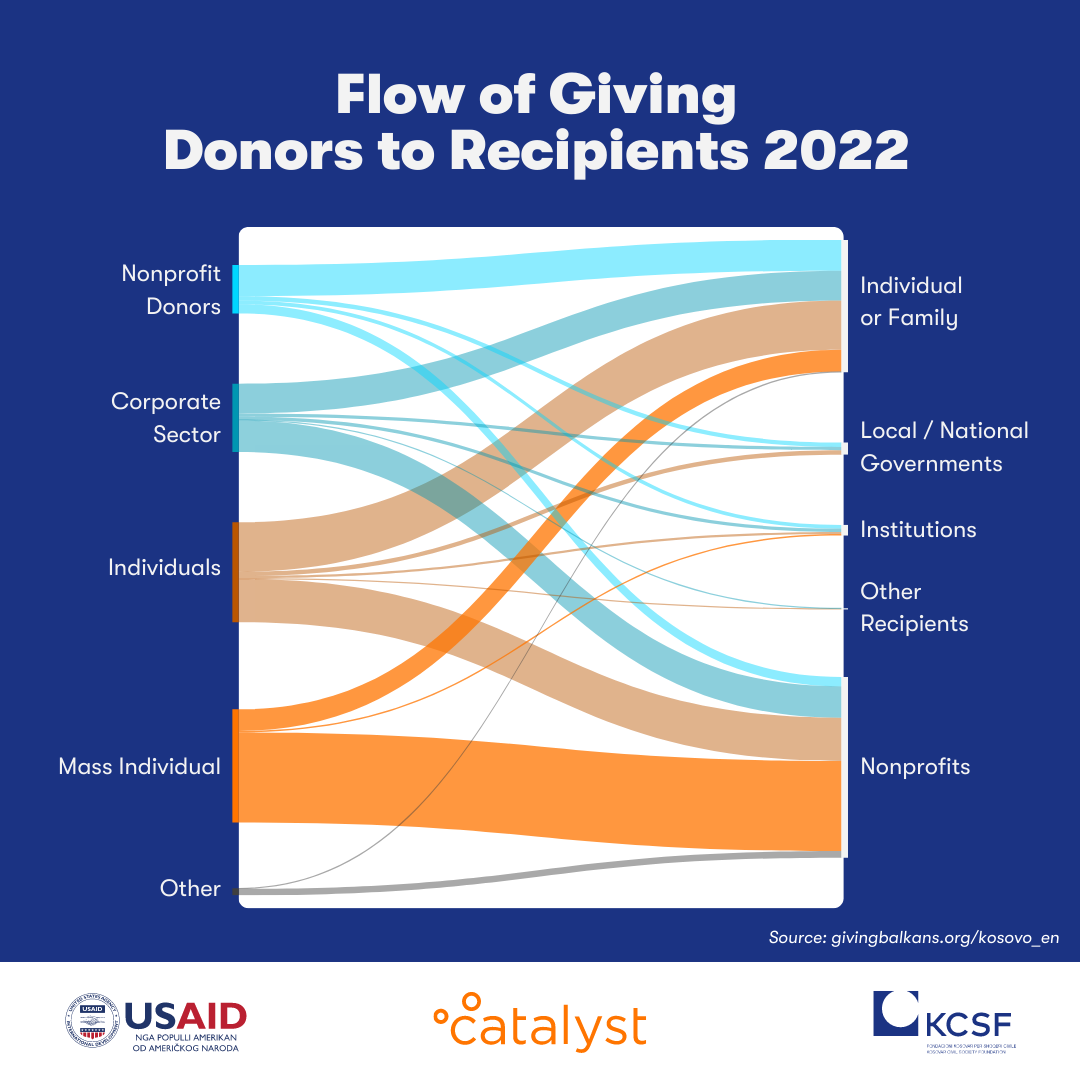
Flow of Giving Donors > Recipients 2022 - download the chart in PDF
Giving to Non-Profits
Under the term non-profit organizations, Catalyst Balkans recognizes the following types of organizations: domestic associations, foreign associations, diaspora associations, private foundations, and corporate foundations. In 2022, giving was recorded only to Kosovo domestic associations and private foundations.
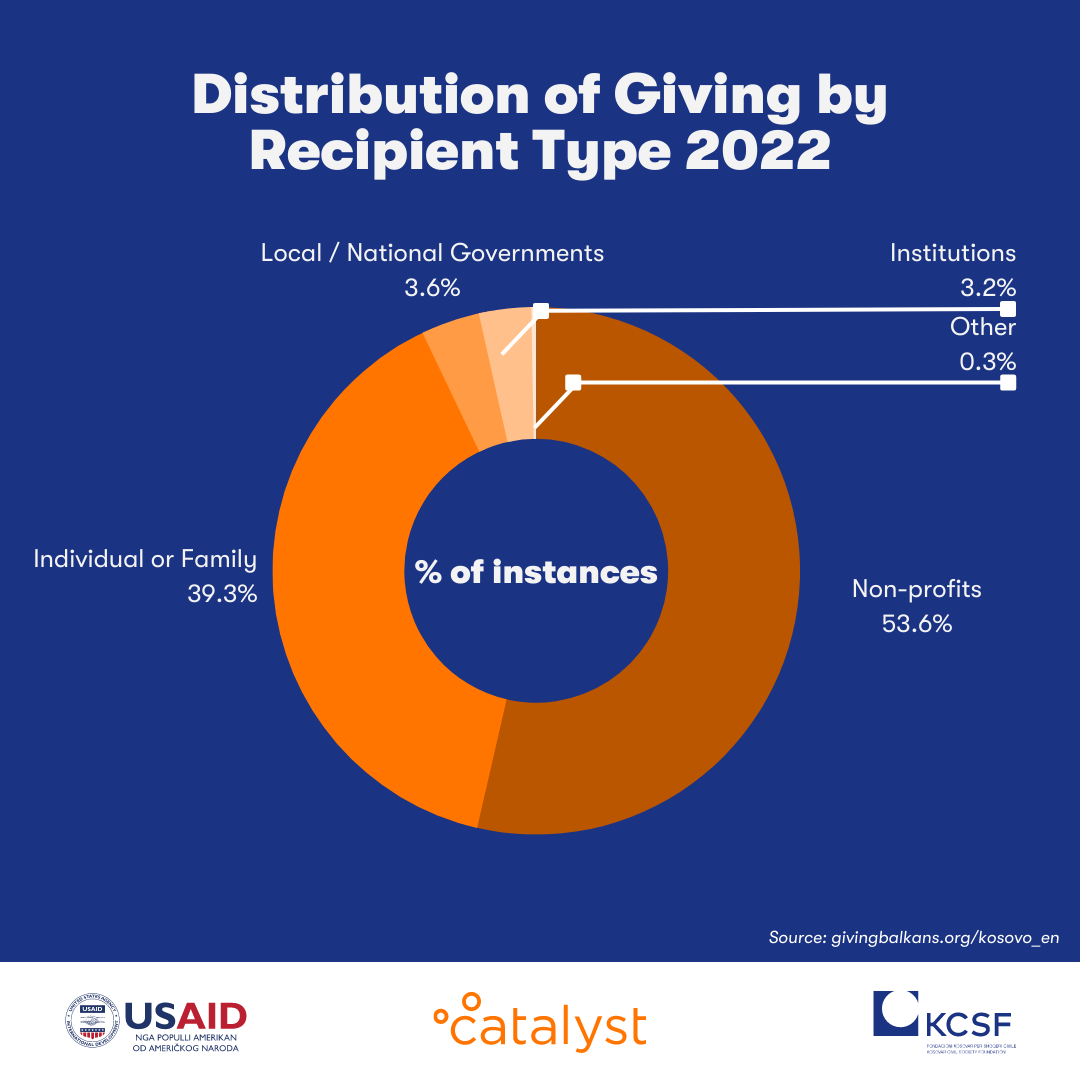
Distribution of Giving by Recipient Type 2022 (% of the instances) - download the infographic in PDF
Non-profit organizations stood out as the primary recipient in Kosovo in 2022, receiving 53.6% of all donations. Giving to domestic associations accounted for 50.2% of all donations, with the most frequent recipients including the Jetimët e Ballkanit Association, Bereqeti Humanitarian Association, Down’s Syndrome Kosova Association, and Action for Mothers and Children.
Donations made to private foundations accounted for 3.4% of all donation instances in 2022.
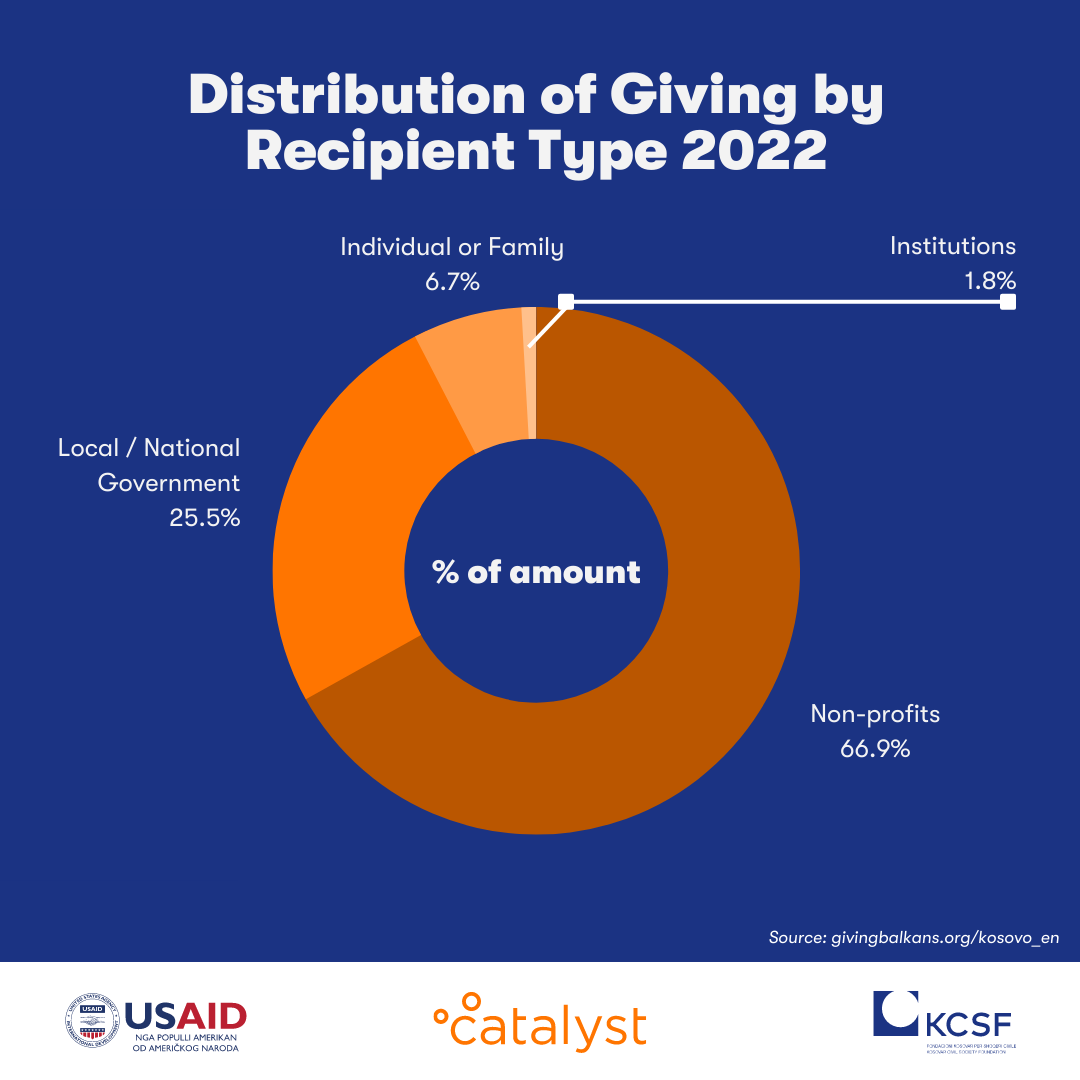
Distribution of Giving by Recipient Type 2022 (% of amount) - download the infographic in PDF
Giving to the State
Giving to state institutions, including local and national government and health, education, culture, and social institutions, comprised a significantly less proportion of the instance of donations in 2022. Out of all donation instances, 3.2% was directed to institutions of various types, and 3.6% were directed to local/national governments. However, a significant value of donations – almost a quarter of the total recorded amount, was intended for the Security Fund of the Ministry of Defense of Kosovo.
Of the public institutions that received private philanthropic support in 2022, health institutions were the most frequent recipient, followed by educational, social, and finally cultural institutions.
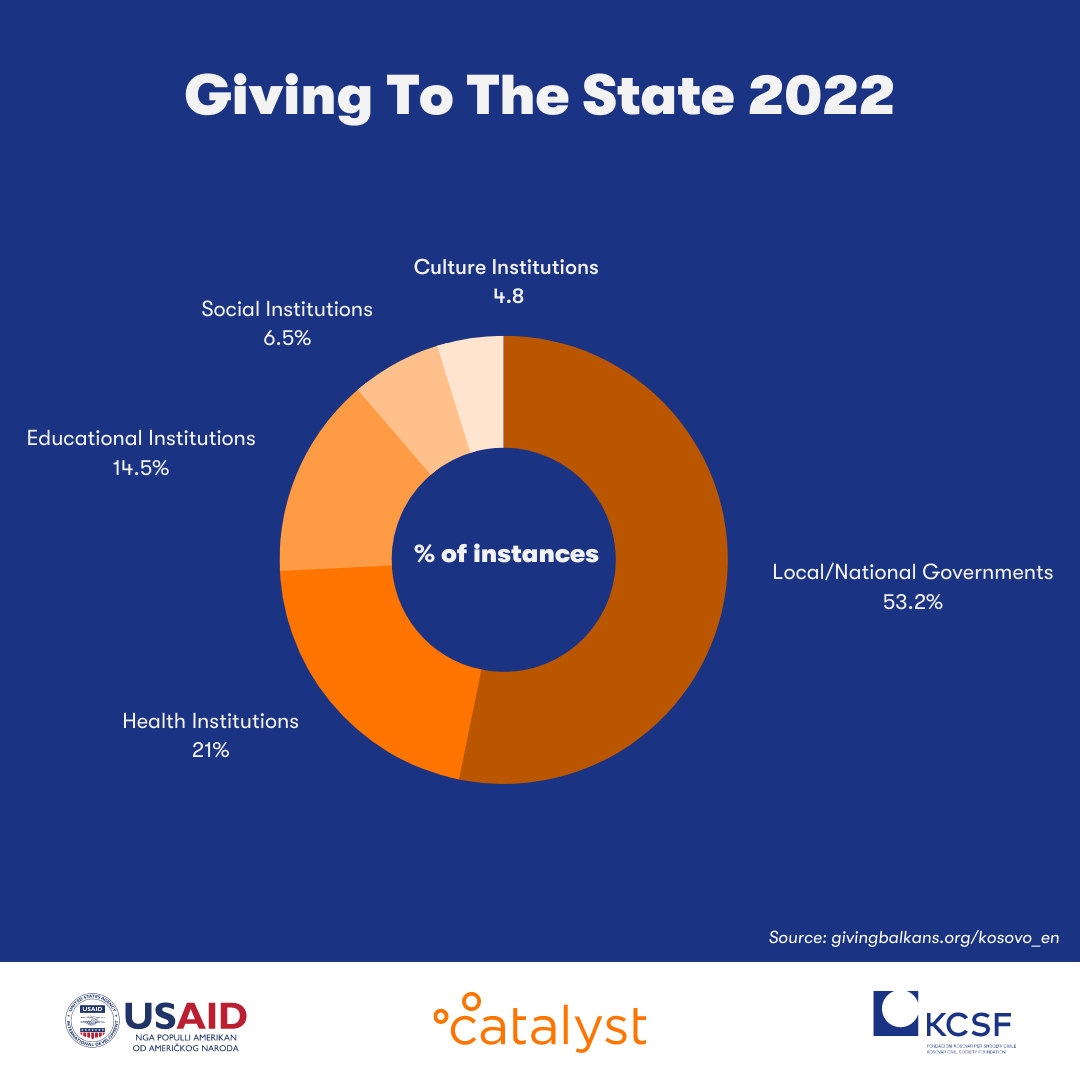
Giving to the State in 2022 - download the infographic in PDF
Examples of Giving
Security Fund
The Ministry of Defense of Kosovo opened the Security Fund to ensure support measures in potential times of crisis. The most prominent donors to the fund were individual donors such as country officials, entrepreneurs, artists, and companies and associations. The total recorded amount of donations raised for the Security Fund in 2022 was around EUR 838,600.
Well for the Hasan Pristina Elementary School
The Bereqeti Humanitarian Association in Drenas, in cooperation with the Chairman of the Council of the Islamic Community in Drenas, announced the opening of a well for the Hasan Pristina Elementary School in the village of Llapushnik. The already existing wells on the grounds of the school no longer produced potable water, so an urgent solution was needed. A neighboring landowner, Jeton Rrahim Thaçi, donated the use of his land for the digging of the well.
Medical equipment and devices for the QKMF
The ASB NGO donated EUR 11,500 to purchase necessary medical equipment and devices for the Main Family Medicine Center (QKMF) under the Directorate of Health in Mitrovicë.
More on the state of philanthropy in Kosovo in 2022:
- Giving Kosovo 2022: Report on the State of Philanthropy
- Infographic: Who Gets the Support?
- Kosovo's Giving Trends in 2022: A Spotlight on Poverty Relief and Healthcare Donations
- Kosovo Philanthropy: Beneficiary Groups and Support Channels in 2022
- Kosovo's 2022 Donor Landscape: A Deep Dive into Individual, Corporate, and Diaspora Giving
- Understanding the Intended Effects of Philanthropic Giving in Kosovo: Short-Term vs. Long-Term in 2022
This report is made possible by the generous support of the American people through the United States Agency for International Development (USAID). The contents are the responsibility of Catalyst Balkans and do not necessarily reflect the views of USAID or the United States Government.
The Citizen Engagement Activity in Kosovo is a five-year initiative implemented by Kosovar Civil Society Foundation (KCSF) in partnership with the United States Agency for International Development (USAID).

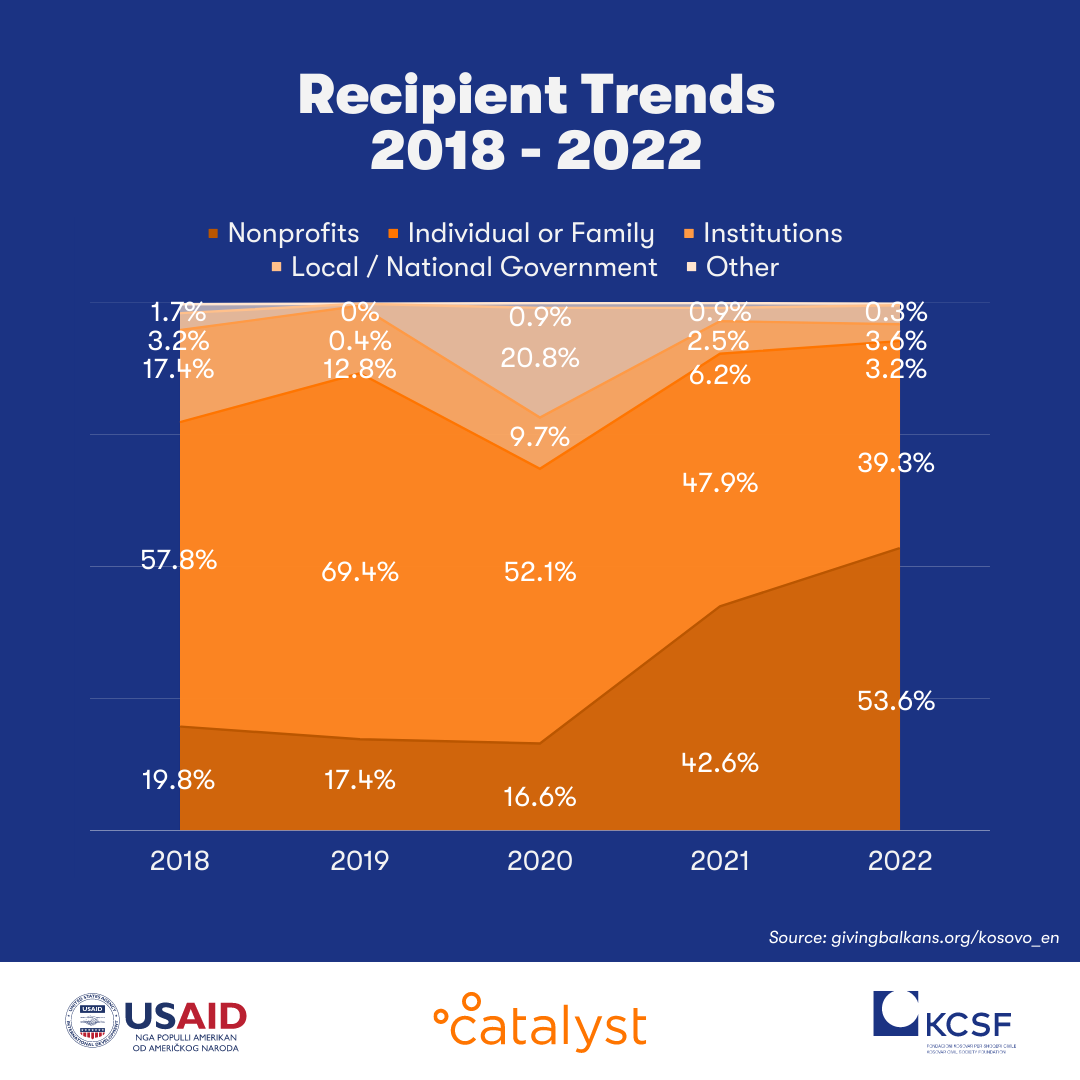

Leave a comment